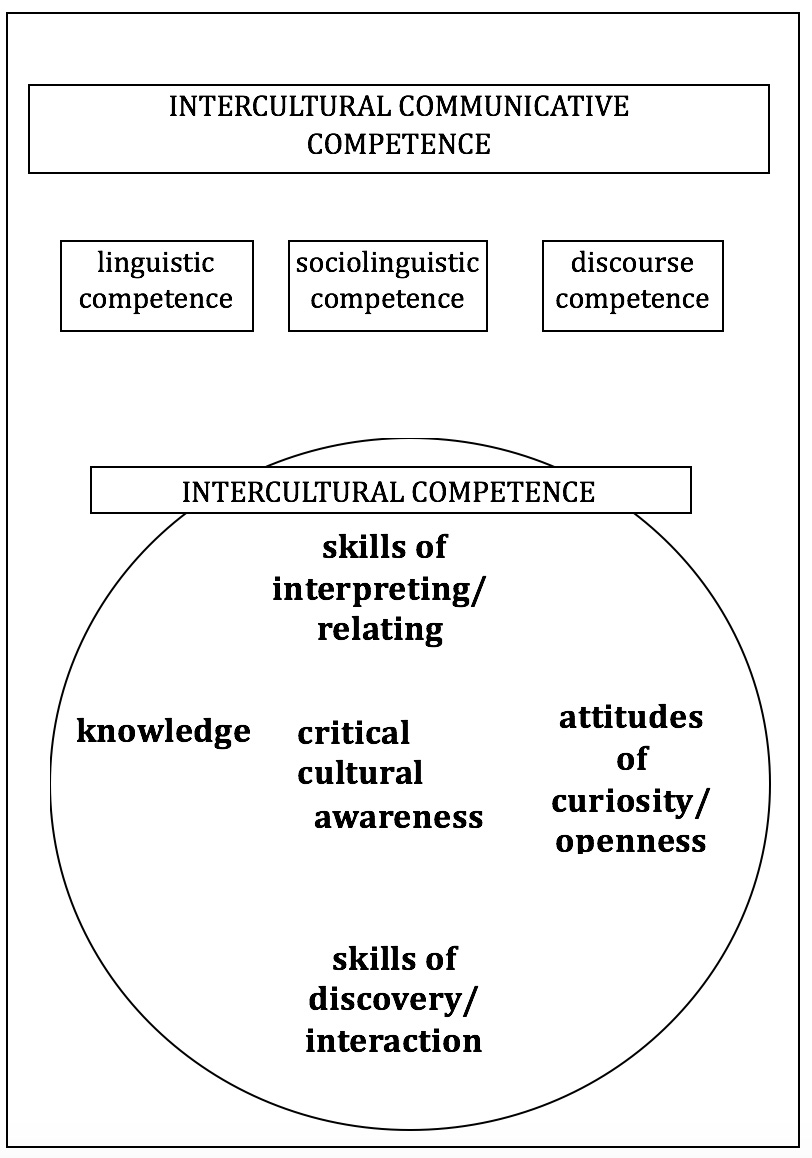View Content #21228
| Contentid | 21228 |
|---|---|
| Content Type | 3 |
| Title | Developing Intercultural Communicative Competence in the World Language Classroom |
| Body | Manuela Wagner is Associate Professor of Foreign Language Education and Director of the German Language and Culture Program at the University of Connecticut, USA. Michael Byram is Professor Emeritus at the University of Durham, UK and Guest Professor at the University of Luxembourg. This two-part piece will be continued in the June 20 issue of InterCom. In foreign language education, we are uniquely situated to help our students gain the skills necessary to become, what we call, intercultural citizens (Byram, 2008). In this two-part series, we share our experiences designing and implementing projects which integrate intercultural citizenship in a variety of contexts in and beyond the world language classroom. In part 1, we provide a step-by-step description of our process followed by examples of collaborative projects. Step 1: If possible, team up Planning and implementing intercultural communicative competence (ICC) in a systematic way is time-intensive. Work in teams in order to benefit from each others’ perspectives. Step 2: Choose the context and create objectives Whether you decide to integrate ICC in a lesson plan, a unit, a school year or the whole program, you will need to decide what your main objectives are. Our advice would be to start small, best by modifying a unit you are already teaching. Step 3: Choose a theoretical framework In order to systematically implement ICC, it is important to choose a theoretical framework and principles which best help you meet your objectives. In our projects, we used the model of intercultural communicative competence developed by Byram (1997). As illustrated in Figure 1, students will need to develop a) linguistic competences in the target language, b) attitudes (especially curiosity and willingness to decentre), c) knowledge about the “products, practices and perspectives” (The National Standards Collaborative Board, 2015) of a cultural group, d) the ability to interpret and relate, and e) the ability to discover and interact with students or native speakers of the language in order to acquire critical cultural awareness. Critical cultural awareness, “an ability to evaluate, critically and on the basis of explicit criteria, perspectives, practices and products in one’s own and other cultures and countries”, is an important dimension in this model and in our projects.
Figure 1: Intercultural Communicative Competence (Byram, 1997) We will briefly describe and illustrate step 4 (co-design activities and assessments), step 5 (implement and document) and step 6 (assess and refine) in part 2. We conducted projects from elementary school through university in which we implemented ICC and intercultural citizenship, a concept which we will also cover in part 2. We learned that asking ourselves the right questions was paramount for the success of our projects. Some of the questions we find useful include:
References Byram, M. (1997) Teaching and assessing intercultural communicative competence. Clevedon, UK: Multilingual Matters. Byram, M. (2008) From foreign language education to education for intercultural citizenship. Clevedon, UK: Multilingual Matters. The National Standards Collaborative Board. (2015). World-Readiness Standards for Learning Languages. 4th ed. Alexandria, VA: Author. - See more at: http://www.actfl.org/publications/all/world-readiness-standards-learning-languages#sthash.ItD1L0E1.dpuf |
| Source | CASLS Topic of the Week |
| Inputdate | 2016-05-16 14:42:03 |
| Lastmodifieddate | 2016-05-30 03:34:04 |
| Expdate | Not set |
| Publishdate | 2016-05-30 02:15:01 |
| Displaydate | 2016-05-30 00:00:00 |
| Active | 1 |
| Emailed | 1 |
| Isarchived | 0 |

